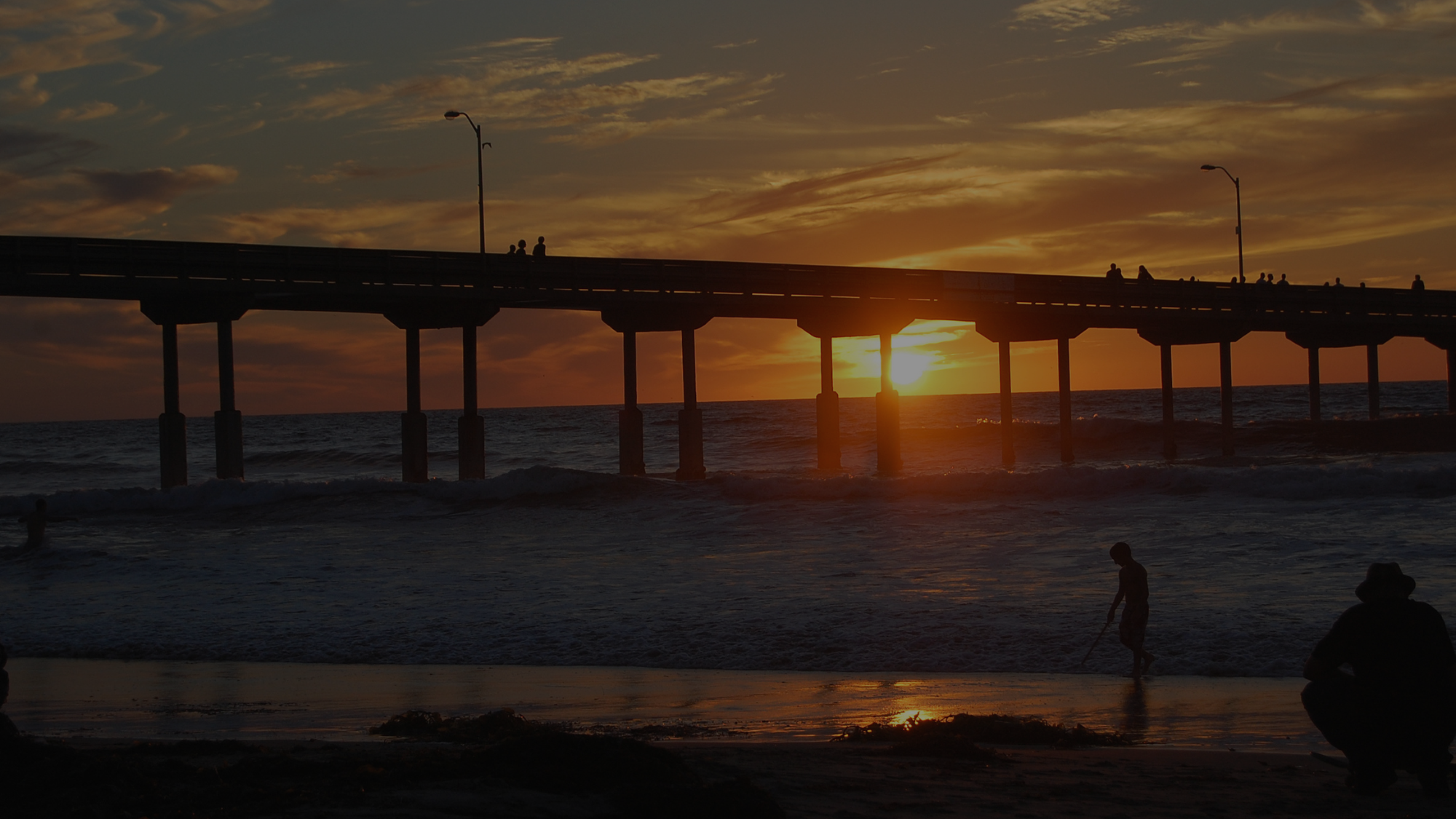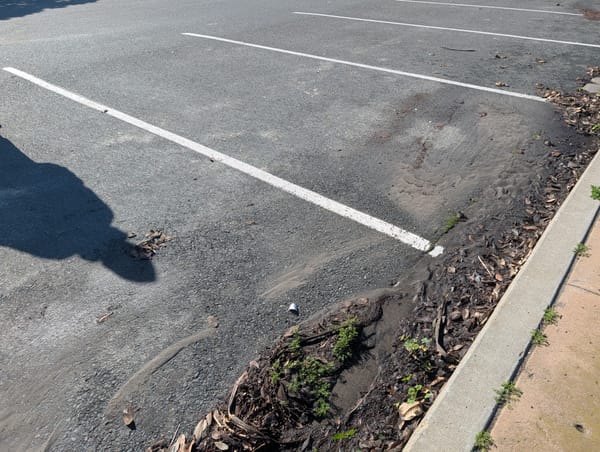Local nonprofits unite amid Trump-era funding cuts
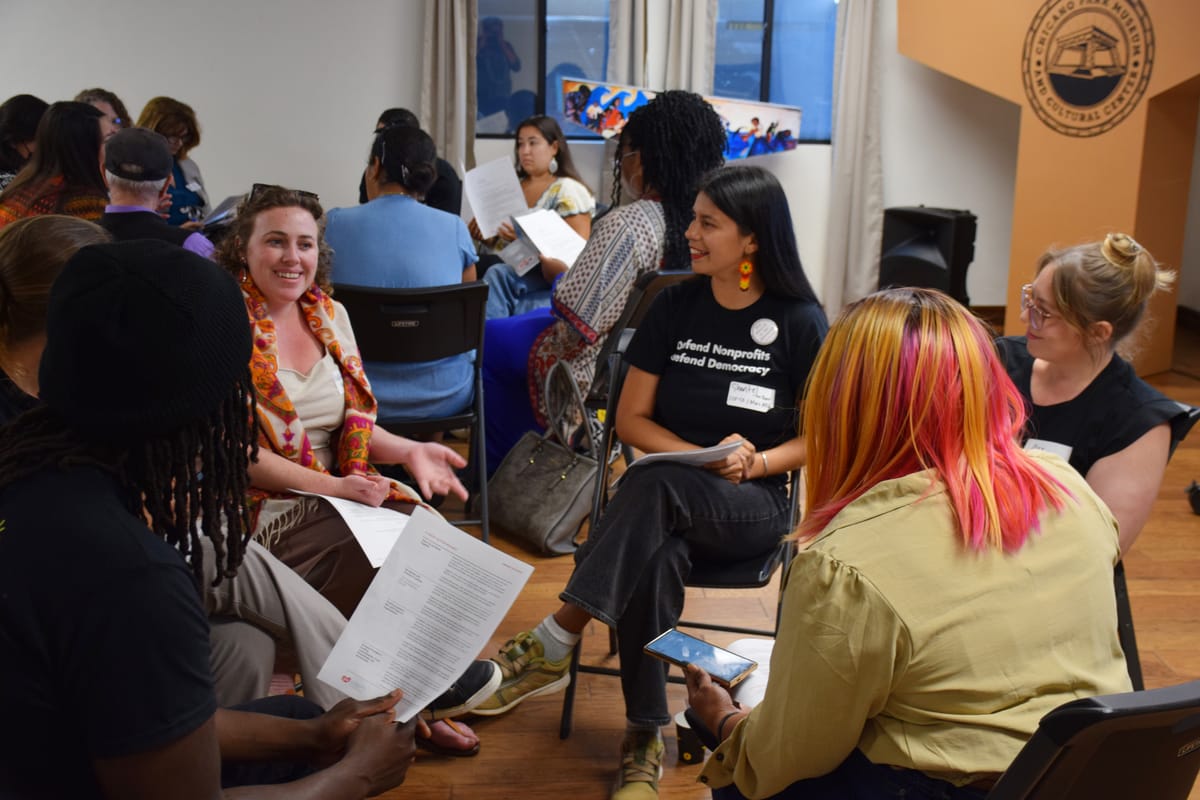
The newly formed San Diego Solidarity Network is pushing for flexible funding to keep essential services available and staff on the payroll.
Written by Lauren J. Mapp, Edited by Maya Srikrishnan
Reeling from sweeping grant cuts under the Trump administration, San Diego nonprofit leaders and staff will gather tonight in Barrio Logan to advance their months-long effort to sustain and expand critical community resources.
Stewards from Community-Centric Fundraising, or CCF, helped launch the San Diego Solidarity Network earlier this year after the administration and its Department of Government Efficiency slashed federal grant programs that many local nonprofits rely on.
Some San Diego nonprofits lost previously awarded grants, while others face delayed disbursements or the threat of losing future federal support.
CCF steward Shantel Suárez Ávila said that the collaboration helps nonprofit leaders feel less isolated as they build collective power to address community needs.
“For a while it was so hard to say that we were having a hard time,” she said. “It created a sense of solidarity and excitement around (being) a community that's going to do something about it.”
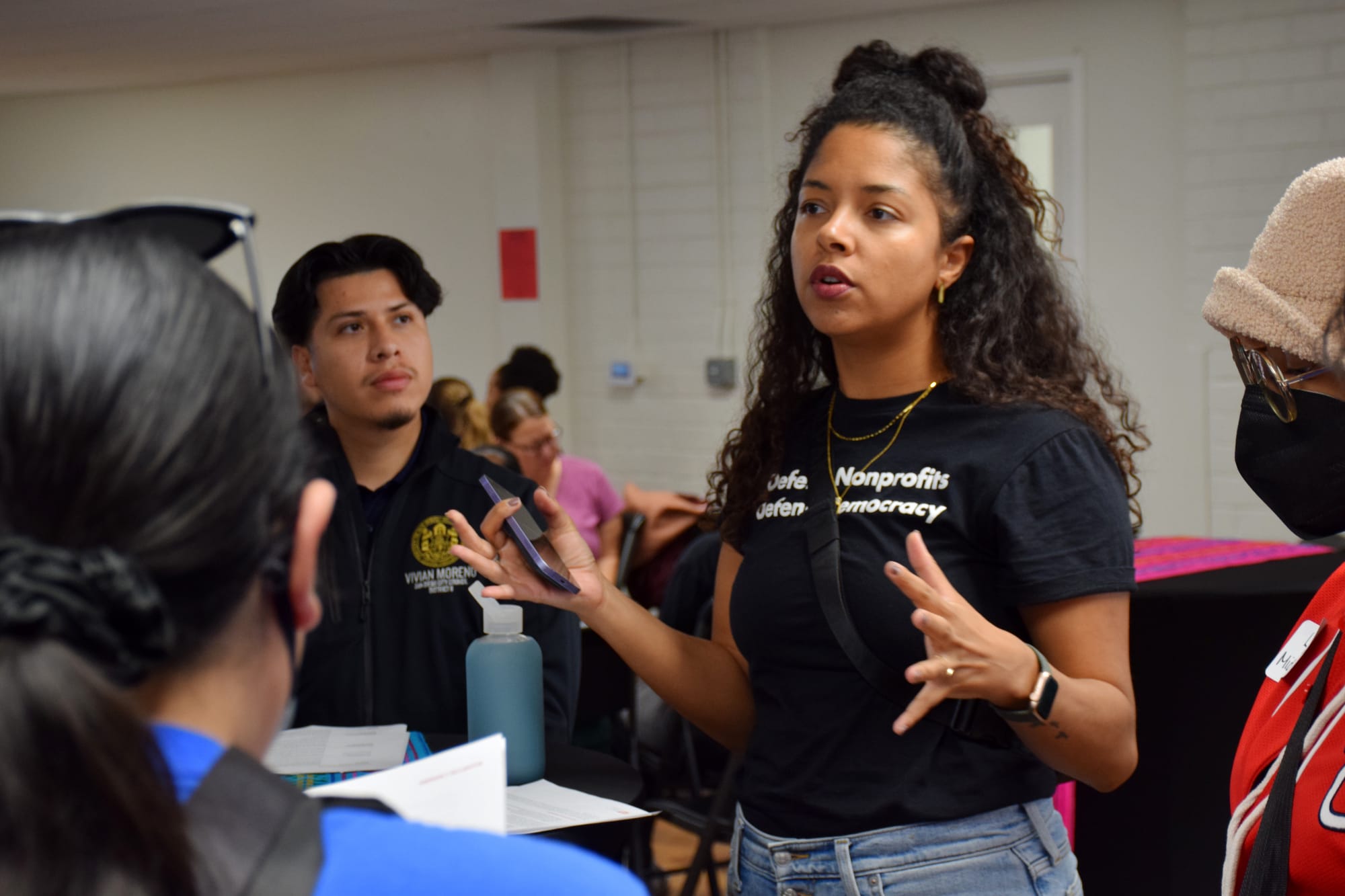
Now, the group is pushing for unrestricted use funds from non-governmental foundations so nonprofits can keep staff employed and maintain essential community services.
“Nonprofit organizations have lost so much funding that the flexibility of whatever new funding comes in is really important,” Suárez Ávila said.
Early budget impacts spark swift response
As of 2022, San Diego was home to more than 13,000 nonprofits, which brought in roughly $28 billion in total revenue, the Nonprofit Institute at University of San Diego reported.
The Institute surveyed more than 400 San Diego County nonprofit leaders in February. Of those, 72% reported either direct or anticipated impact from the federal budget cuts. Nearly a third of leaders said they needed to cut or change services, while others reported financial instability and heightened fear among clients and staff.
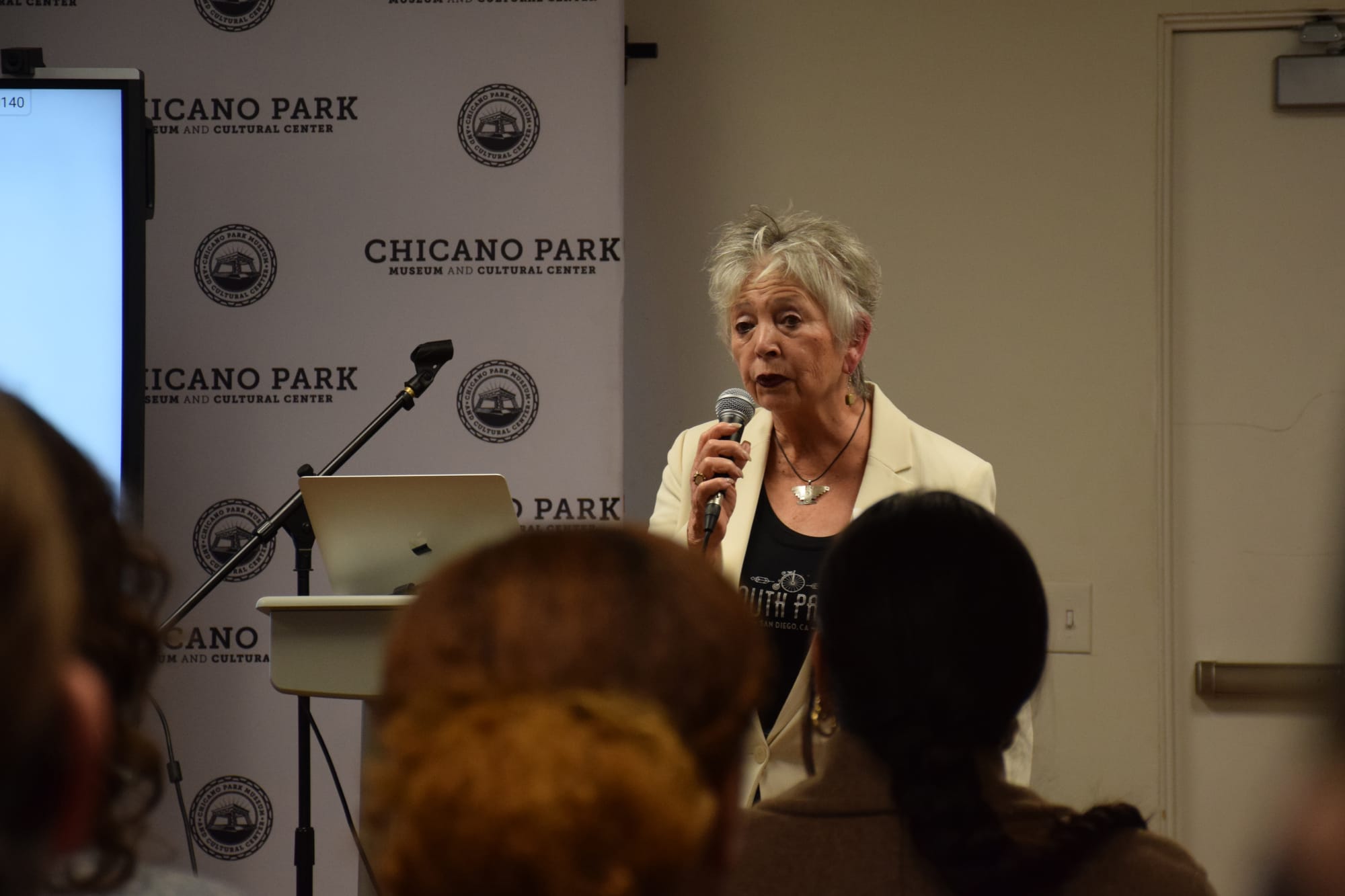
As of mid-February, leaders at 15 nonprofits told the Institute that 498 employees had been laid off or furloughed, most of whom worked at immigrant and refugee service organizations.
Since its first town hall in April, San Diego Solidarity Network members have shared budget impacts, identified collective needs and coordinated strategies to survive through President Donald Trump’s second term.
In June, the group issued an emergency declaration that said rescinding federal grant funding threatens organizations serving San Diego’s most vulnerable residents.
“Federal actions are undermining civil society and threatening San Diego’s most marginalized communities,” the declaration read, in part. “As democratic principles erode and public funding stalls, nonprofits are being pushed to do more with less—just as community needs are rising.”
Since his inauguration, Trump has made several policy decisions that cripple nonprofit funding.
“There's a sense of urgency,” Elly Brown, co-executive director at the San Diego Food System Alliance and CCF co-steward, said. “There's things we could do together across organizations. Through a coalition there's a lot we can do to build power, to shift the dynamics, to shift the thinking and the resources, as well as elevate the value of (nonprofit) work.”
In January, the Office of Management and Budget issued a memo freezing all financial assistance programs, including federal grants.
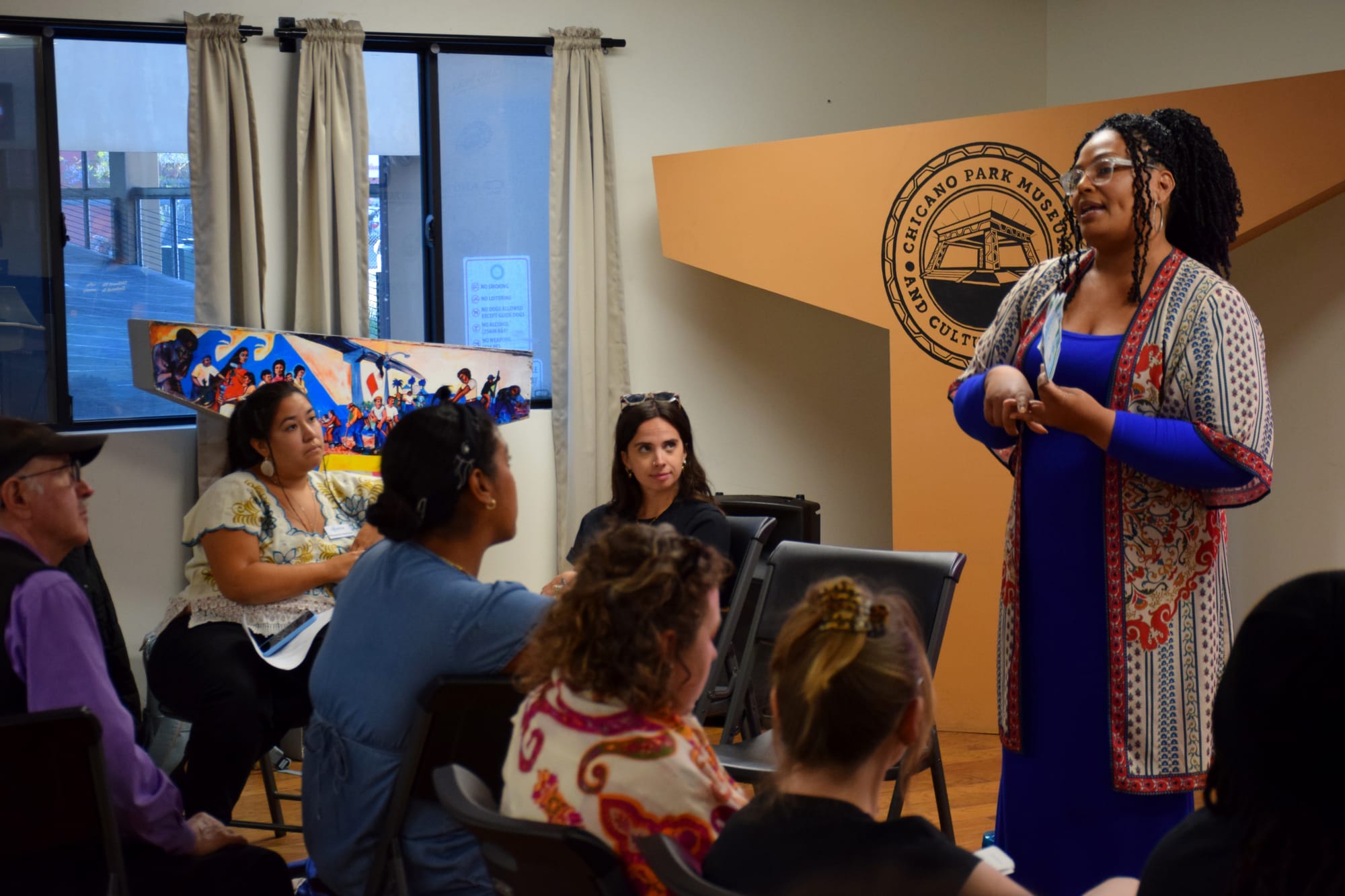
Trump’s cuts have especially impacted larger nonprofits that tend to have greater portions of their budgets funded by federal dollars, like the Environmental Health Coalition in National City.
The Environmental Protection Agency and Department of Government Efficiency canceled more than 400 grants that had been awarded but not yet distributed nationwide, including some for equity and environmental justice.
In its April 3 newsletter, the Environmental Health Coalition said the termination of the $20 million in EPA funding it was promised will impact several climate change resilience projects in the region.
The nonprofit said the cuts will cancel the MTS Electric Bus Program to reduce greenhouse gas emissions, and the Holistic Healthy Homes program, which provides air quality and energy consumption upgrades to low-income families.
Cancellations of those grants unravel the long-term advocacy of local organizations and individuals, EHC said.
“These are community-led projects that are years, if not decades, in the making,” the email read.
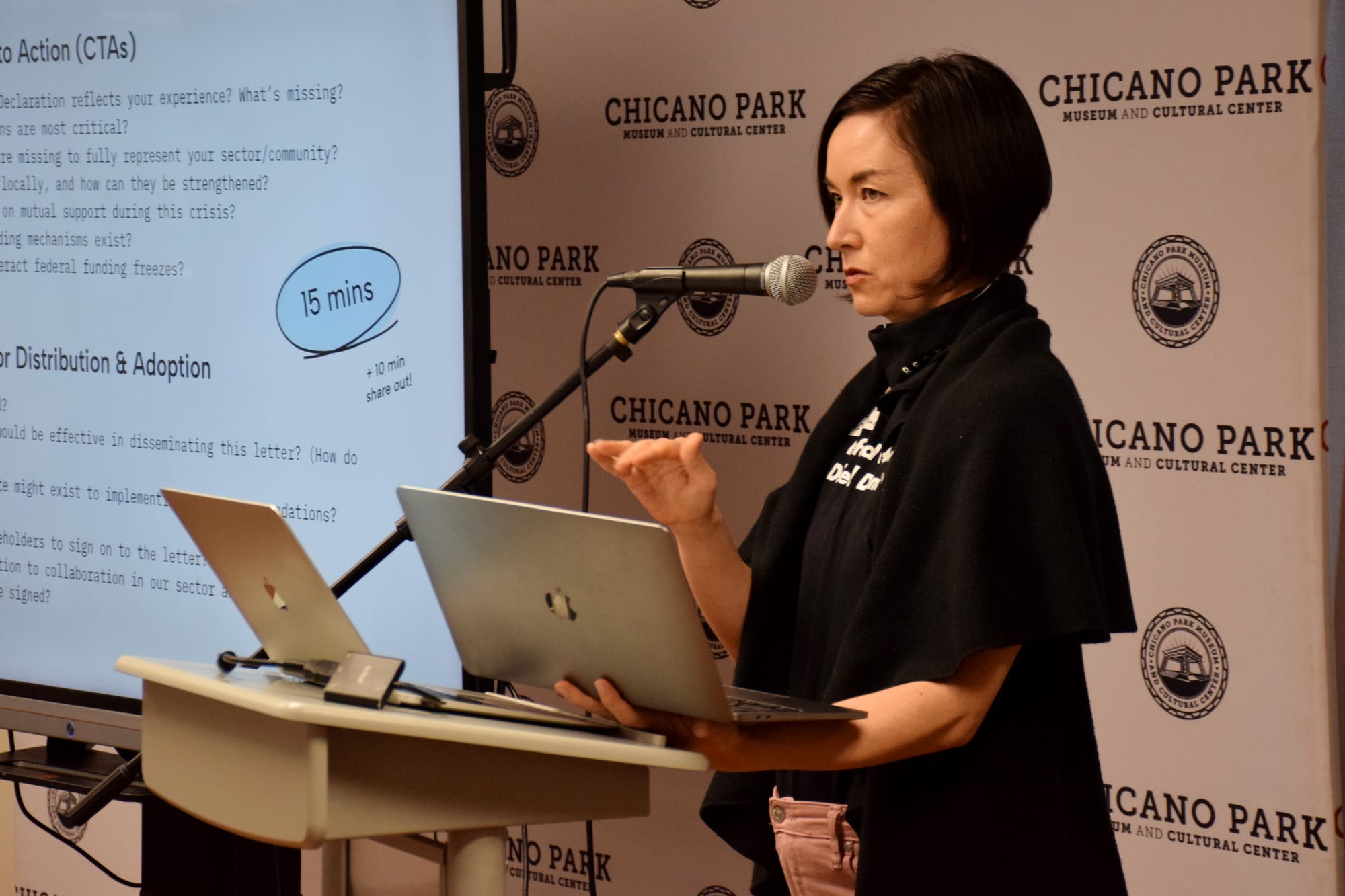
Another local nonprofit experiencing the fallout from federal disinvestment from the Trump administration is the San Diego Food System Alliance.
In April, Brown said federal funding makes up half the alliance’s budget, and one of the nonprofit’s bigger contracts was frozen.
Ignored invoices by the federal government caused chaos as staff became unsure of whether they’d be paid. Having that money pulled from them, she said, has been “devastating.”
“That's really shaken up our organization significantly,” Brown said. “We've had very heartbreaking decisions we had to make in terms of reducing hours and layoffs.”
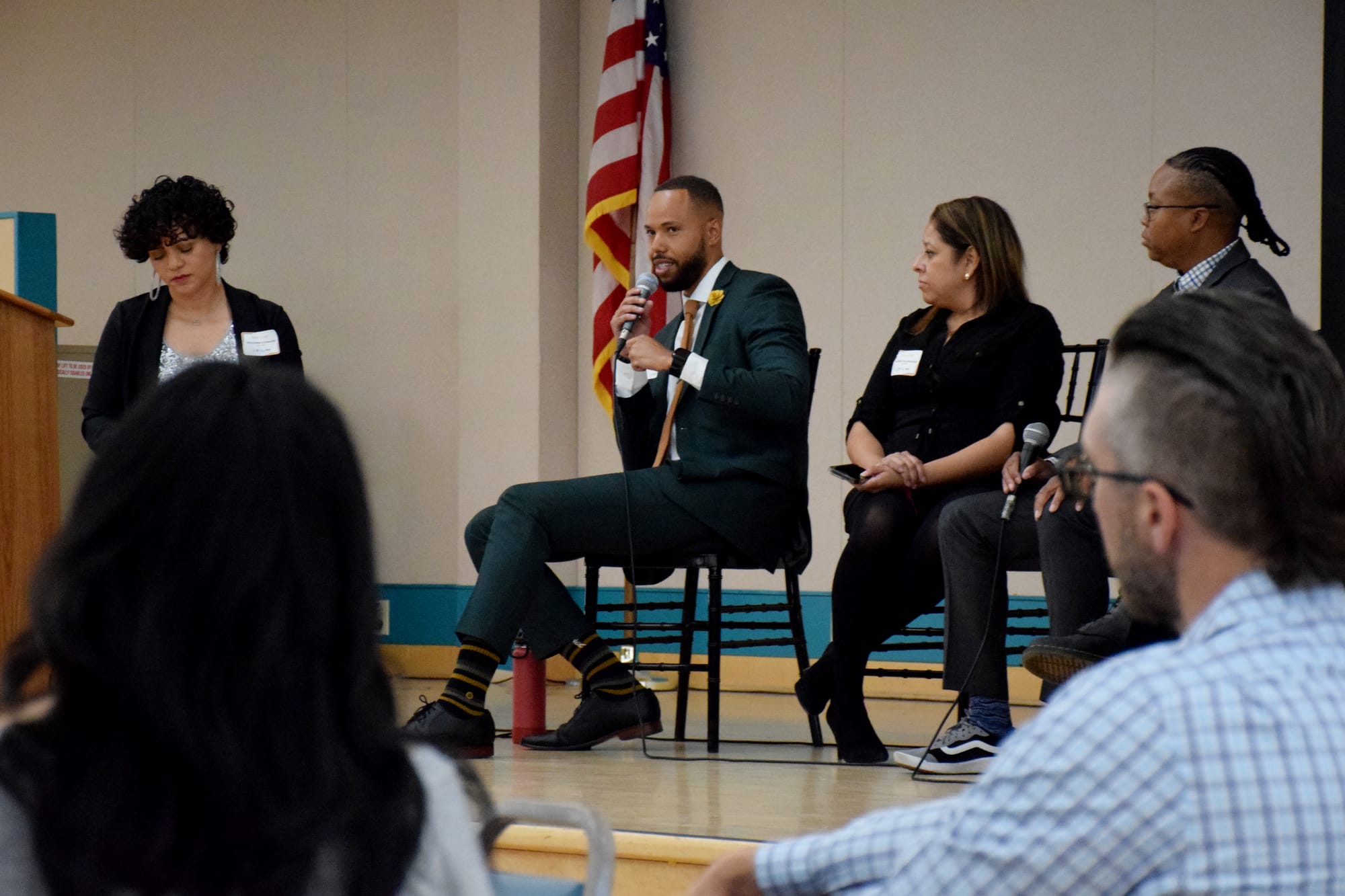
In addition to the work led by CCF, nonprofits in the region are supporting and communing with one another in a variety of ways, including the late April Threads of Change gathering in Balboa Park. The event — sponsored by USD’s Nonprofit Institute, the County of San Diego, the City of San Diego and RISE San Diego — focused on fostering reflection, equity, care and collective action.
During a May press conference, California Housing Partnership released its annual report with the San Diego Housing Federation. They were flanked by a coalition of nonprofit leaders sharing how their organizations have been impacted by federal cuts.
Stephen Russell, president and CEO of the San Diego Housing Federation, said the event underscored the urgency of centering budgets around working families struggling with housing, child care and food insecurity.
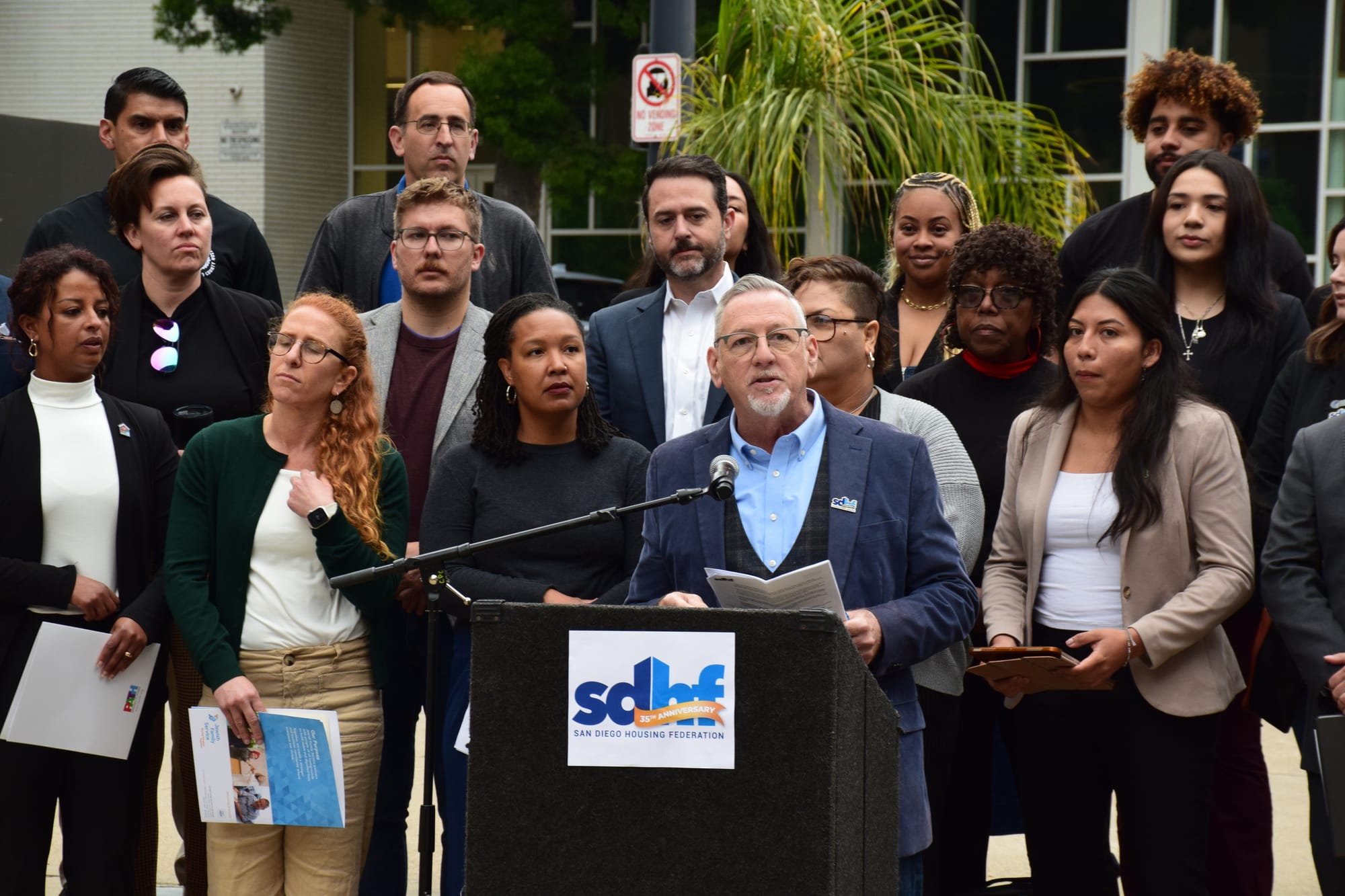
“In the face of unprecedented budget challenges at all levels of government we asked some of our community partners to join us in calling attention to the cost of those basic needs that lower-income working families and households struggle with,” Russell said.
The San Diego Solidarity Network will hold its fourth town hall today at 4 p.m. at the Chicano Park Museum and Cultural Center. The event is free to attend and those interested can register online.


